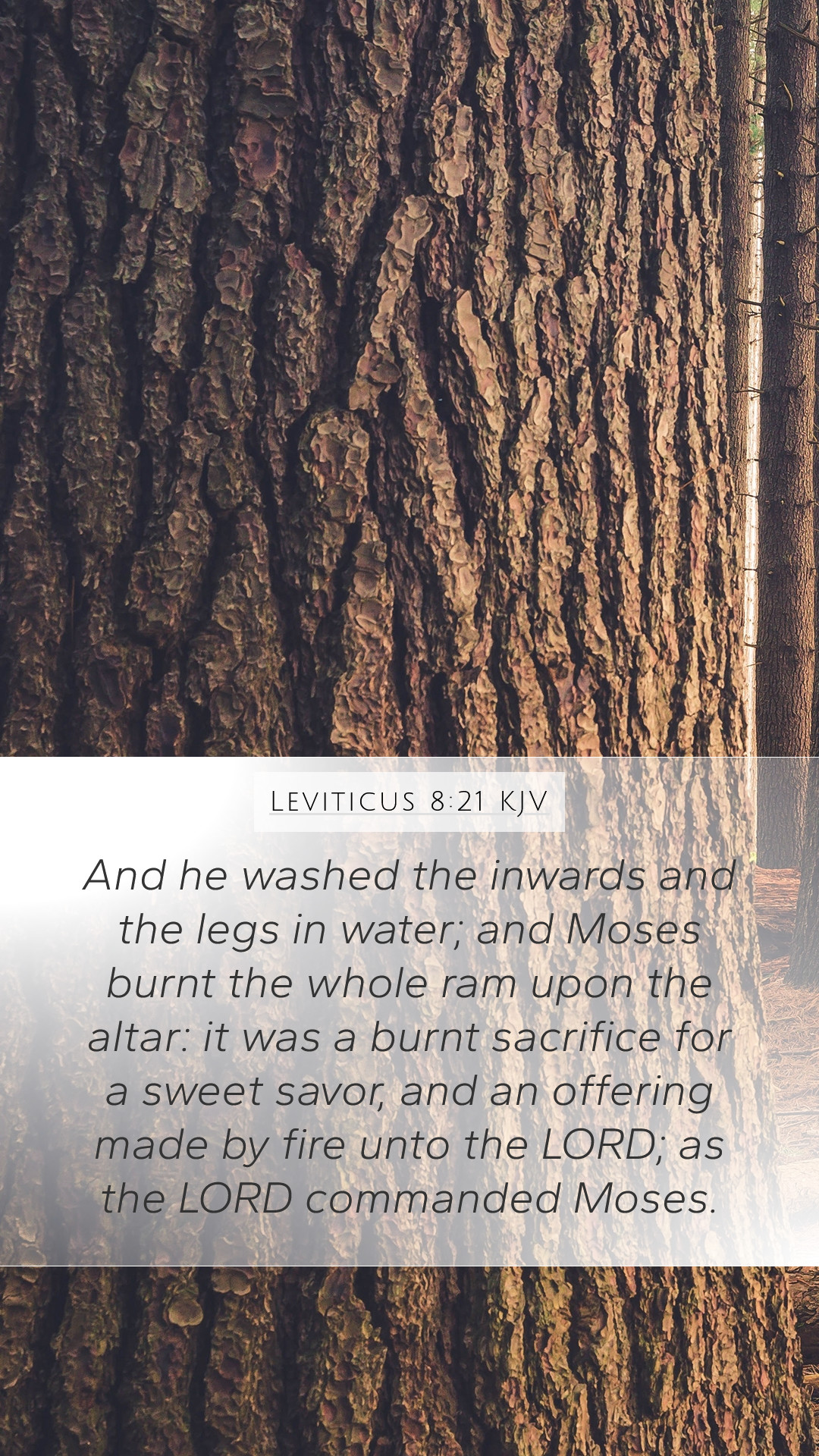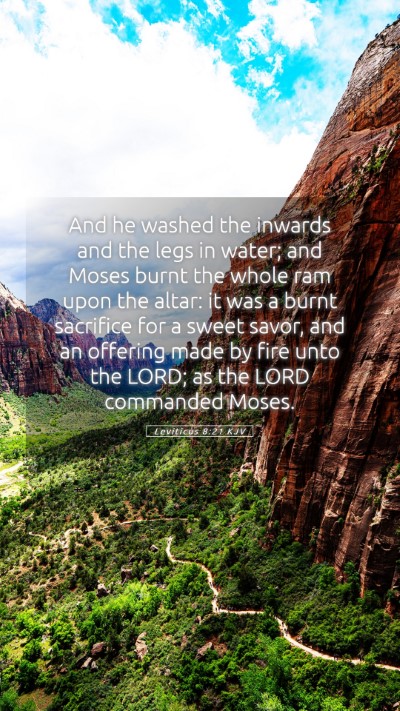Bible Verse Meaning: Leviticus 8:21
Leviticus 8:21 states: "And he washed the inwards and the legs in water: and Moses burnt the whole ram upon the altar: it was a burnt sacrifice for a sweet savour, and an offering made by fire unto the Lord; as the Lord commanded Moses." This verse captures an essential moment in the consecration of Aaron and his sons, highlighting the significance of ritual purity and obedience to divine commandments.
Understanding the Context
The book of Leviticus is rich with laws and instructions regarding worship and the holiness required of the priests and the people. In Leviticus 8, God commands Moses to consecrate Aaron and his sons as priests, a vital act in establishing the priestly system in Israel. Their consecration involves several rituals, one of which is closely examined in verse 21.
Summary of Key Interpretations
- Moses' Actions: The washing of the inward parts and legs signifies the importance of purification before service to God. According to Matthew Henry, this act represents the necessity of inner cleanliness and integrity as one approaches divine service.
- Burnt Offering Significance: The burnt sacrifice symbolizes total dedication to God. As Adam Clarke explains, the "whole ram" being burnt completely signifies that the offering is wholly devoted to God, pleasing Him and serving as a vital act of worship.
- Divine Command and Obedience: The verse emphasizes the importance of adhering to God's commands. Albert Barnes reiterates that the act of Moses was not done arbitrarily but in obedience to specific instructions from God, a theme central throughout the entirety of Leviticus.
- Symbolism of Sacrifice: This verse also illustrates the symbolism of sacrifice in the Old Testament. The "sweet savour" signifies God's acceptance of the offering, suggesting that when done rightly, worship and sacrifices please the Lord.
Biblical Exegesis and Deeper Insights
The act of washing reflects more than mere cleanliness; it is a profound symbol of inward purity required in worship. As believers today explore Bible verse meanings, the washing signifies the need to come before God without sin or stain, paralleling New Testament teachings on holiness.
Relation to Broader Biblical Themes
This verse connects to broader biblical themes of holiness and redemption:
- The concept of holiness throughout scripture, especially in Leviticus where repeated emphasis is placed on purity.
- Understanding sacrificial systems and how they foreshadow the ultimate sacrifice of Christ as described in Hebrews 10:12.
Application of Leviticus 8:21 in Today’s Context
In understanding Scripture, the principles found in Leviticus 8:21 can be applied to modern believers' lives through:
- Striving for purity in heart and actions as part of spiritual worship.
- Recognizing the importance of obedience to God’s word, reflecting on how scripture guides daily conduct.
- Understanding the significance of sacrifice in worship, whether that be time, talents, or resources given to God.
Cross References
Additional verses that connect with Leviticus 8:21 include:
- Exodus 29:18 - Instructions for burnt offerings.
- Hebrews 9:14 - Discussion on the blood of Christ cleansing the conscience.
- Romans 12:1 - Call to present our bodies as living sacrifices.
Conclusion
Leviticus 8:21 stands as a crucial reminder of the significance of purity, obedience, and the nature of sacrifices required in worship. As Christians engage with this verse, they can find profound lessons on the character of God and the necessity of being whole before Him. Through the rich traditions of biblical exegesis and study tools, believers will deepen their understanding of scripture and its applications in daily life.
This verse invites further exploration into how the principles of Old Testament law relate to the freedom and grace found in the New Testament, enhancing individuals' Bible study insights and growth in faith.


